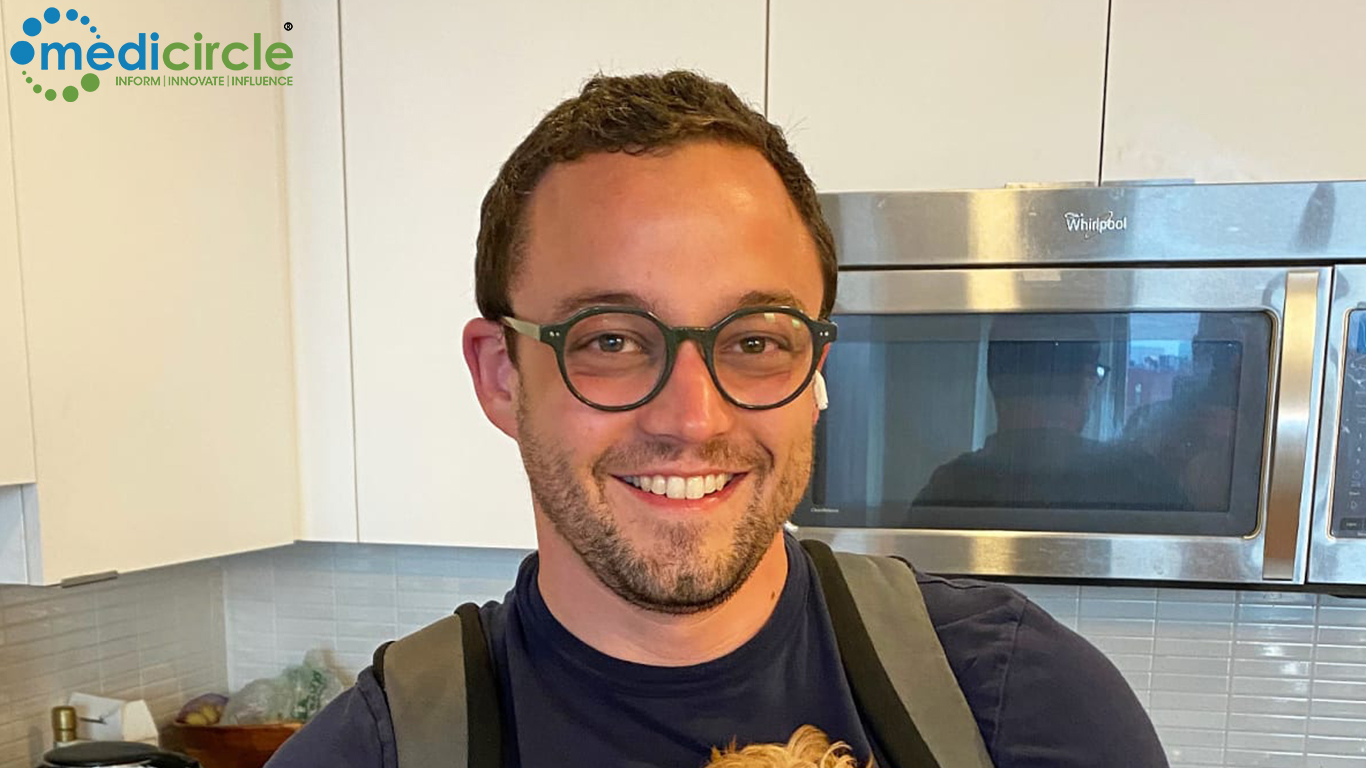Stroke is commonly perceived as an ailment that affects older individuals. However, the recent experience of Alex McKeown, a 33-year-old from Chicago, challenges this notion and highlights the importance of awareness and timely medical intervention, even among younger populations.
Alex McKeown’s ordeal began during what seemed like a typical morning workout session. Feeling uneasy throughout the morning, Alex decided to push through his discomfort and attend his exercise class. Despite completing the first three rounds of exercises, he suddenly felt light-headed and dehydrated. In an attempt to counteract these symptoms, Alex drank a gallon of water, suspecting dehydration was to blame.
However, Alex’s condition did not improve. Even after drinking orange juice, he still felt unwell. Recognizing the severity of his symptoms, he was taken to the hospital. There, doctors diagnosed him with a stroke. Thanks to rapid and timely treatment, Alex made a full recovery without any long-term damage. This outcome highlights the critical importance of swift medical intervention during a stroke.
A stroke occurs when there is an interruption in the blood supply to the brain. This can happen due to a blockage (ischemic stroke) or a rupture of a blood vessel (hemorrhagic stroke). Both scenarios prevent brain cells from receiving the oxygen and nutrients they need, leading to cell death.
Types of Stroke:
- Ischemic Stroke: This is the most common type of stroke, accounting for about 87% of all cases. It occurs when a blood clot blocks an artery supplying blood to the brain.
- Hemorrhagic Stroke: This type occurs when a blood vessel in the brain bursts, causing bleeding in or around the brain. It is often associated with conditions like high blood pressure and aneurysms.
Recognizing the symptoms of a stroke is crucial for prompt treatment. Common symptoms include:
- Sudden numbness or weakness in the face, arm, or leg, especially on one side of the body.
- Sudden confusion, trouble speaking, or understanding speech.
- Sudden trouble seeing in one or both eyes.
- Sudden trouble walking, dizziness, loss of balance, or coordination.
- Sudden severe headache with no known cause.
In Alex’s case, his symptoms included light-headedness and a feeling of dehydration. However, it’s important to note that these can also be indicative of other conditions, making it essential to seek medical attention when such symptoms arise.
The prompt medical intervention that Alex received was instrumental in his full recovery. Dr. Ali Shaibani, the chief neurologist for radiology at Northwestern Medicine in Chicago, emphasized the urgency of treating strokes. "You lose about 1.9 million brain cells per minute with a stroke, so we moved very quickly to clear out a large blood clot that was blocking his artery," he explained.
While strokes are less common in young adults, accounting for only about 10-15% of cases in people under 45, they can and do occur. The primary risk factors for stroke in younger individuals include:
- High blood pressure
- Diabetes
- Smoking
- High cholesterol
- Obesity
- Heart disease
- Family history of stroke
Alex’s case is particularly notable because it highlights that even younger individuals without obvious risk factors can experience a stroke. This reinforces the need for vigilance and awareness of stroke symptoms across all age groups.
An aneurysm is a weakened area in the wall of a blood vessel that can balloon out and potentially burst. If an aneurysm in the brain bursts, it can lead to a hemorrhagic stroke, as was the case with Alex. Symptoms of a ruptured aneurysm can include:
- A sudden and severe headache (often described as the worst headache of one’s life)
- Nausea and vomiting
- Stiff neck
- Blurred or double vision
- Sensitivity to light
- Seizure
- Loss of consciousness
While some risk factors for stroke, such as family history, cannot be changed, many others can be managed through lifestyle choices. Here are some tips to reduce the risk of stroke:
- Maintain a Healthy Blood Pressure: High blood pressure is a significant risk factor for stroke. Regular monitoring and medication, if necessary, can help keep it in check.
- Control Diabetes: Proper management of diabetes can reduce the risk of stroke.
- Quit Smoking: Smoking cessation significantly lowers the risk of stroke and other cardiovascular diseases.
- Exercise Regularly: Physical activity helps maintain a healthy weight and lowers the risk of stroke.
- Eat a Healthy Diet: A diet rich in fruits, vegetables, whole grains, and lean proteins can help maintain overall health and reduce stroke risk.
- Limit Alcohol Consumption: Excessive alcohol intake can increase the risk of stroke.
- Manage Stress: Chronic stress can contribute to high blood pressure and other risk factors for stroke.
Alex McKeown’s experience serves as a powerful reminder that strokes can happen to anyone, regardless of age. It highlights the importance of recognizing stroke symptoms and seeking immediate medical attention. Additionally, it showcases the role of a healthy lifestyle in reducing the risk of stroke.
For individuals experiencing unusual symptoms like Alex, it’s crucial not to dismiss them or attribute them solely to common conditions like dehydration. Consulting a healthcare professional can make the difference between a full recovery and potentially devastating outcomes.
By raising awareness about stroke symptoms, risk factors, and the importance of timely treatment, we can help reduce the impact of this serious health condition. Whether you’re young or old, understanding stroke and taking proactive steps to manage your health can save lives and improve outcomes.

 By raising awareness about stroke symptoms, risk factors, and the importance of timely treatment, we can help reduce the impact of this serious health condition.
By raising awareness about stroke symptoms, risk factors, and the importance of timely treatment, we can help reduce the impact of this serious health condition.










.jpeg)

.jpeg)










.jpg)




.jpg)

